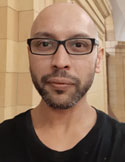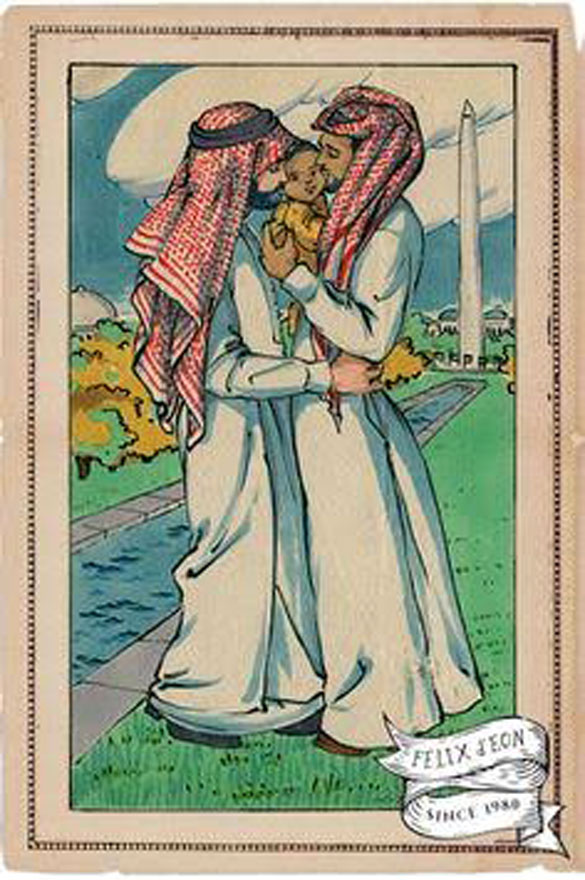
By Junaid Jahangir, New Age Islam
15 October 2020
New Age Islam recently re-posted an article from 2017 that offers a conservative perspective on the issue of homosexuality in Islam. Here are a few observations on that article.

1) Over Reliance on Tafsir Is Problematic
The author of the article extensively relies on the Tafsir (exegesis) of Ibn Kathir that projects homosexual conduct as “something unheard of in the history of mankind” until the time of the people of Lut.
The first issue that arises is that why is Ibn Kathir, who was taught by Ibn Taymiyyah, given precedence over other Islamic exegetes. One explanation is that a lot of Islamic education through madrassas is funded by Saudi petro-dollars, which are heavily invested in branding Islam through the works of Ibn Taymiyyah and his disciples Ibn Qayyim and Ibn Kathir.
The second issue is that over reliance on Tafsir sometimes leads to more conundrums than we can solve. For instance, based on the Biblical calendar, the people of Lut are dated to be around 1712 BCE and according to archaeological dating the destruction of the cities of Bab edh-Dhra and Numeira, conjectured to be the sites of Sodom and Gomorrah, is dated about 2300 BCE.
However, there is extensive evidence of homosexual conduct much before these timelines. For instance, homosexual practice was an accepted part of Mesopotamia as far back as 3000 BCE. Additionally, historical record traces same-sex conduct as far back as 10,000 years in the Melanesian region and 40,000 years ago among aboriginal people of all racial lines. All of this weakens the position of using Ibn Kathir’s commentary to further one’s perspective.
Also Read:
The Holy Quran: Why Were The Verses On The People Of Lut Revealed?
2) The People Of Lut Inflicted Oppression Not Affection
The author also offers an inappropriate translation for verse 11:79. He presents the people of Lut stating that “we have neither any desire nor any need of your daughters.” However, the word used in verse 11:79 is min haqq (claim or right) and not irba (desire). This indicates that the issue is not one of desire but one of right and claim to do as one sees fit. This point gets substantiated by the subsequent verse 11:80 that depicts Lut responding “If only I had against you some power ...” It is clear from both verses 11:78 and 11:79 that the people of Lut demanded the guests and Lut felt powerless to protect them.
The author also mentions that the people of Lut “came and gathered … intending to violate the guests” and that Lut knew that “it would be hard to protect them … and his people had already told him not to host anybody.” This raises the question that how in the world does this aggressive assault connect with the LGBTQ+ concerns on intimacy, affection and companionship?
3) Bukhari and Muslim Do Not Report On Liwat
The author also presents information that weakens his case. For instance, he mentions a Hadith classified as authentic by the conditions of Bukhari and Muslim but neither reported it. In fact, the Hadith on Liwat (male anal intercourse) are not found in the books of Bukhari and Muslim. Many of these texts on Liwat emerge from other Hadith compilations and have been branded as inauthentic by various Hadith experts of the past. The one who seemed to have classified them as authentic was the Salafi scholar al-Albani. This allows one to question, why should Muslims follow the methodology of al-Albani over the other Hadith experts?
Also Read:
To Sustain an LGBTQ Affirming Islamic Discourse, Lateral Violence Must End
4) There Is No Religious Consensus on Homosexuality
The author also states that the “People of the Book are agreed” on the “rulings of homosexuality.” However, Reform and Conservative Jews along with the United Church and the Episcopalians fully support same-sex marriage in the respective denominations of their faith.
5) The Islamic Position on Anal Sex Is Diverse
The author claims that “a reasonable-minded person will come to the conclusion that the rectum/anus of a man is not the place where the seeds of reproduction are to be sown” and that “if homosexuality is seen as normal within humans then the end result would be the extinction of the species.”
However, on both counts, the author ignores the diversity of perspectives in Islam. For instance, the minority Maliki position and the Shia position specifically is that of the permissibility of anal sex with the permission of the wife. This position amongst Shias is upheld by the likes of Ayatollahs Sistani, Fadlullah and Lankarani, some of whom deem the act as Makruh (detestable) or counsel to avoid it as a precaution but yet argue that there is no textual prohibition behind the act. As for the claim on reproduction, it is not always necessary within a marriage, which is why the Prophet married many women without having children and which is also, why elderly women and sterile couples are allowed to marry in Islam.
Also Read:
Why Gay Muslims Are Upheld To Standards That Not Even Prophets Fulfil?
6) LGBTQ+ Folks Experience Stigma from Society And Family
The author claims that “most men who engage in homosexual activity (initially at least) feel a strong sense of guilt and sinfulness” and that “people who travel to Europe (and the West in general) from war-torn countries, after losing their entire families … still have far, far fewer incidents of suicide than homosexuals and transgender people.”
However, this only proves how much stigma is wreaked on LGBTQ+ people by society at large, their own families and friends that they internalize so much hatred only to end up harming themselves. This is not the case for refugees who grew up in strong families, had love and support from family and friends, and who find new families in the West, all of which protects their mental health to a considerable extent. The issue is family and societal stigma that harms the individual and not the sexual orientation of the person.
7) Sexual Orientation Is Innate and Cannot Be Wilfully Changed
The author claims that “homosexuality is … fashionable or adopted a result of traumatic sexual abuse experienced as children” and that “homosexuality can be unlearned.” However, what fashionable trend would explain that religious figures in the history of Islam like Dawud al Zahiri of the Zahiri School of jurisprudence struggled with same-sex desires and others like al-Kisai, who gave Muslims one of the seven canonical readings of the Qur’an, openly confessed to same-sex relations? Additionally, something as beautiful as love and affection for another human being cannot arise from something as ugly and painful as sexual abuse. Finally, the scandals of all these ex-gay movements and married men who seek out secret sexual encounters should be a lesson to those who believe that sexual orientation can be wilfully changed.
Indeed, the Lebanese Medical Association for Sexual Health (LebMASH) released a position statement in 2013 indicating:
“Stigma, peer rejection, discrimination, … place homosexuals at a higher risk for psychological problems. … Efforts to change sexual orientation are not based on any sound scientific evidence. On the contrary, this practice has been abandoned due to proven failure and serious harmful effects.”

8) We Cannot Quote From The Bible And Believe It Is Corrupted Simultaneously
The author claims that “no sincere heart would believe the fabrications introduced into the Biblical records” but still goes on to quote Leviticus 20:13 that, “if a man has sexual relations with a man … They are to be put to death and their blood is upon them.”
It seems the author picks and chooses from the Bible what supports his claims. The Bible also contains the death punishment for necromancy, sacrificing to other gods, blasphemy, contempt of court, amongst other “crimes.” However, the Islamic position is clear. The Hanafi School of jurisprudence rejects the capital punishment for Liwat on the basis of the argument that Qiyas (analogy) cannot be applied to Hudud punishments and that the analogy between Zina and Liwat does not hold for various reasons including the absence of reproduction in the latter.
Instead of quoting Leviticus, the author should note Ezekiel 16:49, “Now this was the sin of your sister Sodom: She and her daughters were arrogant, overfed and unconcerned; they did not help the poor and needy.”
This text makes much more sense, as while there is difference of opinion on same-sex relations across religious denominations; all of them have a consensus that arrogance is one of the cardinal sins.
In essence, we ought to focus on addressing the stigma and prejudice that families and societies inflict on LGBTQ+ Muslims instead of getting offended by the love and affection shared between same-sex couples.
-----
Junaid Jahangir is an Assistant Professor of Economics at MacEwan University. He is the co-author of Islamic Law and Muslim Same-Sex Unions. With Dr. Hussein Abdullatif, a paediatric endocrinologist in Alabama, he has co-authored several academic papers on the issue of same-sex unions in Islam.
New Age Islam, Islam Online, Islamic Website, African Muslim News, Arab World News, South Asia News, Indian Muslim News, World Muslim News, Women in Islam, Islamic Feminism, Arab Women, Women In Arab, Islamophobia in America, Muslim Women in West, Islam Women and Feminism

No comments:
Post a Comment